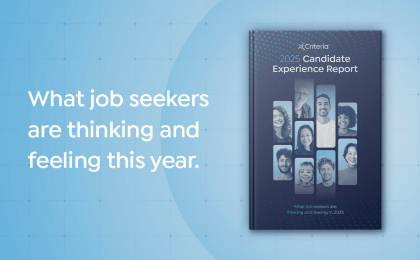Let’s face it: most of us are stressed out most of the time. According to a survey by Paychex, 6 in 10 Americans are stressed three or more work days per week.
Corporate America is well aware of this issue. Wellness programs have become all the rage; according to a survey conducted by the US Department of Labor, 69% of employers offer some sort of wellness program. Despite this fact, more than half of Americans still claim to have poor work-life balance. In a ranking of positive work-life balance in 38 countries, the U.S. came in 30th. Many experts have questioned whether work-life balance is even possible, and some have gone as far as to call it a fantasy or straight-up lie.
So, what is to be done about the near-impossibility of achieving work-life balance? The latest idea to emerge on this topic is a solution called work-life blend. As the name implies, work-life blend aspires to blend our career life with our personal life. The concept is centered on flexibility; the flexibility to do your work on your own time in a way that meshes well with your personal life. That might look like taking a conference call on a camping trip or working an extra hour one day to pick up your child early the next. Most importantly, work-life blend requires the support of management in helping individuals create flexible schedules that work for them.
Millennial and Gen-Z employees are some of the biggest proponents of work-life blend and schedule flexibility. Many attest to the benefits of getting their work done on their own time. Almost a third of millennials have left a job because it did not offer enough flexibility, and nearly 90% would consider taking a pay cut to work for an organization whose values align with their own. The modern job is no longer a simple 9-5; it’s a place that many associate with their identity and are connected to 24/7, thanks to modern technology.
As with most trends, work-life blending has its critics along with its advocates. Some experts worry that work-life blending is too idealistic and can make employees even more overworked. When an employee has a lot on their plate, working after hours in order to sleep in the next day can easily turn into working late and still arriving at the office at the usual time. Furthermore, enjoying extra time off in exchange for working on those vacation days turns into an issue of quality vs. quantity. Would you rather go on a 10-day vacation that is riddled with work interruptions, or a 5-day vacation where you can give your family, friends, and experiences your undivided attention?
Perhaps the best solution to America’s overworking problem is an integration of the ideas of work-life balance and blend. Maybe it looks like providing employees with a flexible schedule Mondays-Fridays, but allowing them to unplug on weekends. Let individuals set boundaries with which they are comfortable; after all, if the research on the subject teaches us anything, it’s that work-life harmony is not one size fits all.





